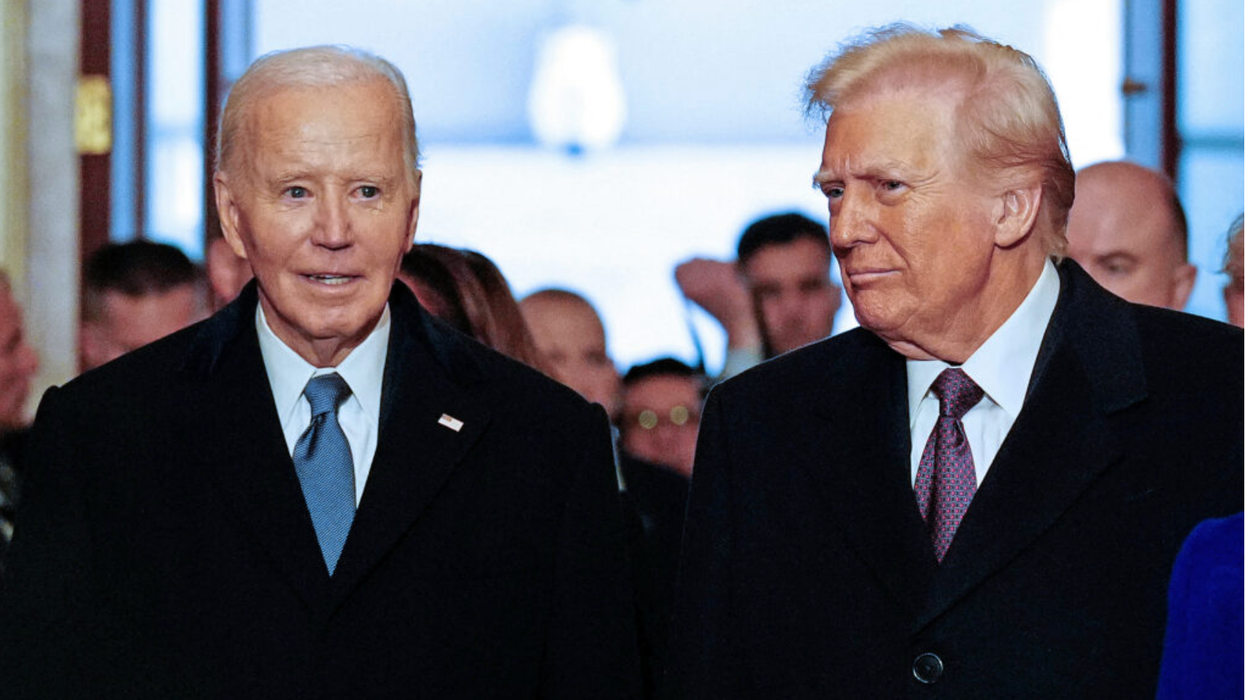With all the attention deservedly on President Trump and what he intends to do with his defiant return to the White House, there’s a more than good chance we’ll spend the next four years consumed once again by all things Trump.
There’s already been a dizzying amount: a giant raft of executive orders; attacks on a constitutional amendment; his threats to invade sovereign nations; a seeming Nazi salute from one of his biggest surrogates; his sweeping Jan. 6 pardons; his beef with a bishop; his TikTok flip-flop; his billion-dollar meme coin controversy; scathing new allegations against one of his Cabinet picks; unilaterally renaming a body of water; a federal crackdown on DEI; promises of immigration raids across major cities. All this in just the first three days of Trump’s second term.
And this may be his greatest trick — getting not only his own fans and supporters to obsess over him, but his critics and opponents, too.
He does that by flooding the zone — he is never not talking, posting, pointing fingers, ranting, raving, and keeping us all in a never-ending game of whack-a-mole.
The problem with that is that so much gets missed. For Republicans, that often inures to their advantage, as they get to slip significant policy changes past an unsuspecting public, or bury bad news under the pile of Trump’s ever-mounting detritus.
But for Democrats, four more years of Trump distractions could mean they miss yet another opportunity to fix their own house, and mount a serious and convincing challenger to end what could be 12 more years of Republican rule in Washington.
They need to find their Ronald Reagan.
Trump’s first term was marked by unprecedented chaos, and Dems admittedly got lured into Trump’s expanding web of distractions. While they busied themselves with investigations and hearings in order to make Trump as weak a president and candidate in 2020 as possible, they weren’t as focused on identifying and cultivating a Democratic candidate, a Democratic message, and Democratic policies that could deliver a fatal blow to the Trump era once and for all.
Over the course of Trump’s first term, his approval rating was never above water, fluctuating between a low of 35% and a high of 49%. After a term marked by civil unrest, incompetence, moral and ethical failures, conspiracy theories, extremism, mismanaging COVID-19, and overseeing Republican losses in the House and the Senate, America was decidedly tired of Trump’s ineptitude and self-destructiveness.
Joe Biden emerged from a crowded 2020 Democratic primary and a general election not with a political mandate but with a collective sigh of relief — he was elected to turn the page on Trump, and then (hopefully) pass on the torch to a younger, fresher, forward-looking Dem.
That, as we know, did not happen. Not only didn’t Biden want to pass the torch, but Democrats didn’t seem to want to architect a winning platform of dynamic messages and successful policies to keep their existing coalition and attract new voters.
Instead, they stuck with old messages that largely centered around Trump: he’s anti-democratic, he’s a convicted felon, and he’s going to end access to abortion.
They also boasted of demonstrably failing policies, insisting the economy was strong as hell, the border wasn’t a crisis, and crime was down.
Without a candidate, messages, or policies that transcended Trump, Democrats were once again playing Trump’s whack-a-mole game.
Instead of finding their own Ronald Reagan, an enormously popular president who not only transformed the conservative movement and the Republican Party, but America and in fact the world, Dems found a Jimmy Carter — a well-intentioned man whose messages and policies nevertheless inspired little confidence in the party.
Instead of setting off 12 years of party control like Reagan did, Dems eked out just four, and now risk finding themselves in the political wilderness.
Democrats must find their Reagan now — a candidate whose utility isn’t just to temporarily sideline Trump but vanquish him and his would-be successors for good.
Who that might be is both an open question and a problem. Democrats’ abject failures in places like California, New York and Chicago shine an ugly spotlight on some of the party’s biggest faces and worst policies. Other boldface names are either too old or too extreme. Identity politics, egos, and intraparty disagreements could easily get in the way.
Democrats must rebuild their party with new faces and new ideas, winning policies and inspiring messages.
For many of us, the next four years under Trump feel like an eternity. But for Democrats, they’ll come and go in the blink of an eye. What they do with that time will change history — possibly forever.
S.E. Cupp: Where is the Democratic Party’s Ronald Reagan? was originally published by the Tribune Content Agency and is shared with permission. S.E. Cupp is the host of "S.E. Cupp Unfiltered" on CNN.




















Trump & Hegseth gave Mark Kelly a huge 2028 gift